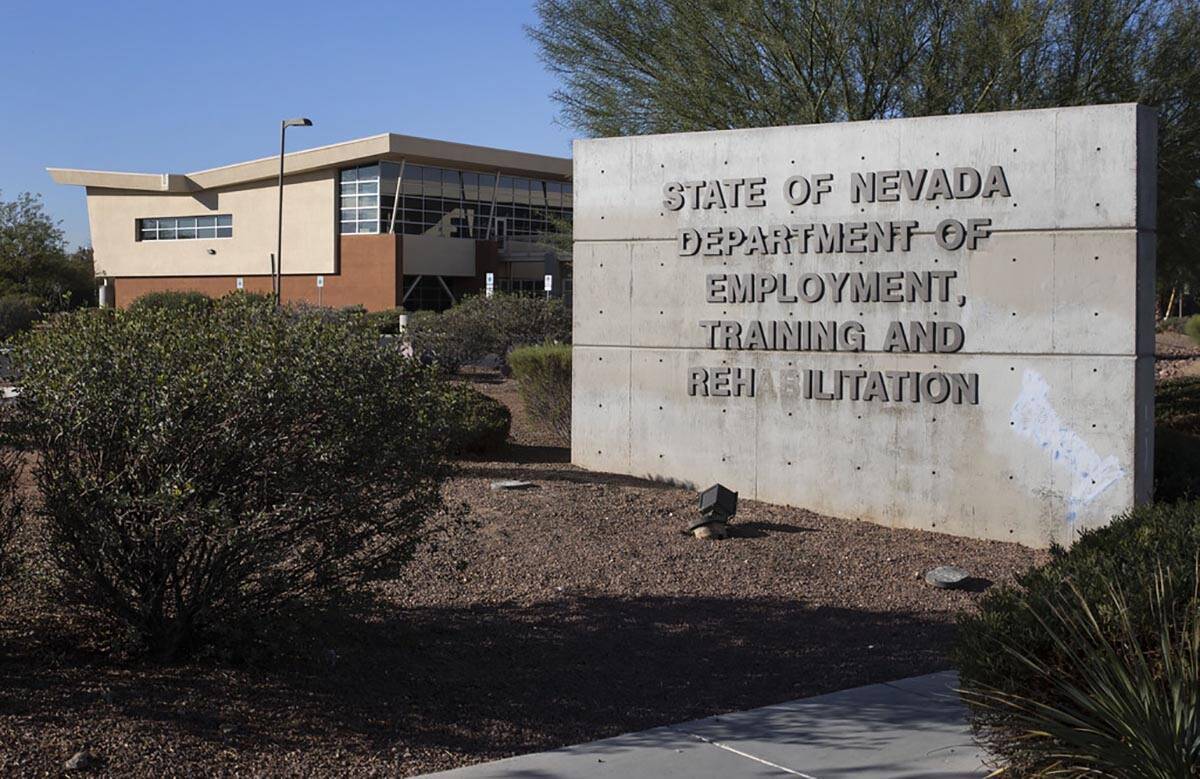What are they hiding? State agency quotes high fees to bog down records requests
Since the pandemic’s onset, the Las Vegas Review-Journal has regularly received complaints from people who couldn’t get their unemployment insurance checks, were victims of fraudulent claims or received unexpected overpayment notices from the Nevada Department of Employment, Training and Rehabilitation.
But when the newspaper requested records to look into the problems this year, the agency responded with a series of demands for money, including $650,000 to review emails about the backlog of claims.
Dave Cuillier, director of the Brechner Center for Freedom of Information at the University of Florida, said excessive copy fees are one of the most common barriers people have in accessing their government — only behind delays and arbitrary denials.
“It’s a problem because they’re used as a weapon of secrecy,” Cuillier said. “Often, if they want someone to go away, they’ll say, ‘We’ll give this to you, but we’ll charge you $50,000.’ ”
DETR declined to comment for this column.
Backlog documents cost thousands
In March, the Review-Journal requested information to dig into DETR’s backlog of unemployment insurance claims. The paper sought emails from DETR staff from the beginning of the pandemic shutdown to the date of the request, regarding fraudulent and overpayment claims.
The request turned up 1.3 million emails, requiring multiple people to work on it, including contract legal review by the legal department’s single lawyer, the agency said.
The Review-Journal attempted to narrow the request twice — first by specifying which staff and officials’ emails the newspaper wanted to review and later by narrowing the time frame. But the agency still demanded $10,639 to release about 21,000 emails.
“The 50 cents a page will no doubt be less than the actual overtime costs, but it is the policy of this agency not to charge anything higher since the Nevada Supreme Court has already found that fee to be reasonable and our policy currently limits any charging to that rate,” Carolyn Broussard, an attorney for the agency, said in the request’s response. “The actual cost will be far worse on (the Employment Security Division) and will no doubt slow down normal operations.”
The Review-Journal was unable to obtain the records because of the costs.
The Nevada Public Records Act says an agency can charge for the actual cost of providing records. It does not allow governments to charge for overhead like employees’ salaries.
“One of the duties of governmental entities is to provide the public with public records upon request,” Review-Journal Chief Legal Officer Benjamin Lipman said. “The public already pays government salaries. People requesting records should not have to pay those salaries a second time just for asking the government to do its job.”
DETR will receive $312.5 million in public money for its operations during the 2023-2024 fiscal year, according to the state.
‘Weaving through the maze’
Sometimes agencies use fees to force a requester to narrow the requested information, Cuillier said. An agency can point out how much time and taxpayer resources it would cost to fulfill a hefty request, possibly bogging down the agency.
“We have to find something reasonable in the middle,” Cuillier said. “But it’s really up to the agency to find that reasonable sweet spot, and too often that doesn’t happen. They just throw some big number, and hope you go away and really won’t discuss it further.”
State law requires an agency to work with the requester to find a way to release the records, but that didn’t happen in the DETR case.
Experts say not to give up after receiving a high-figure quote for a records request. Use it as a chance to enter into a conversation with the records keeper by challenging and pushing back or by narrowing down your request further.
That method proved successful in obtaining some DETR records: The Review-Journal requested a digital copy of DETR’s unemployment insurance computer operations manual earlier this summer. The newspaper wanted to determine if the system can produce the number of claimants at each point of the unemployment insurance initial judgment and appeals process.
DETR wanted $1,083 for the documents, saying there were about 2,100 pages that required review.
The Review-Journal countered, pointing out that the request was for electronic copies and the law that the agency cited referred to geographic information systems specifically.
The agency then changed its stance. It dropped the quoted fee and released the records.
“Don’t see it as battering down a castle wall,” Cuillier said. “See it as going around or over, weaving through a maze to get to the cheese you want.”
A previous version of this story incorrectly cited a statute that had been eliminated in 2019.
The “What Are They Hiding?” column was created to educate Nevadans about transparency laws, inform readers about Review-Journal coverage being stymied by bureaucracies, and shame public officials into being open with the hardworking people who pay all of government’s bills. Were you wrongly denied access to public records? Share your story with us at whataretheyhiding@reviewjournal.com.
McKenna Ross is a corps member with Report for America, a national service program that places journalists into local newsrooms. Contact her at mross@reviewjournal.com. Follow @mckenna_ross_ on X.


















